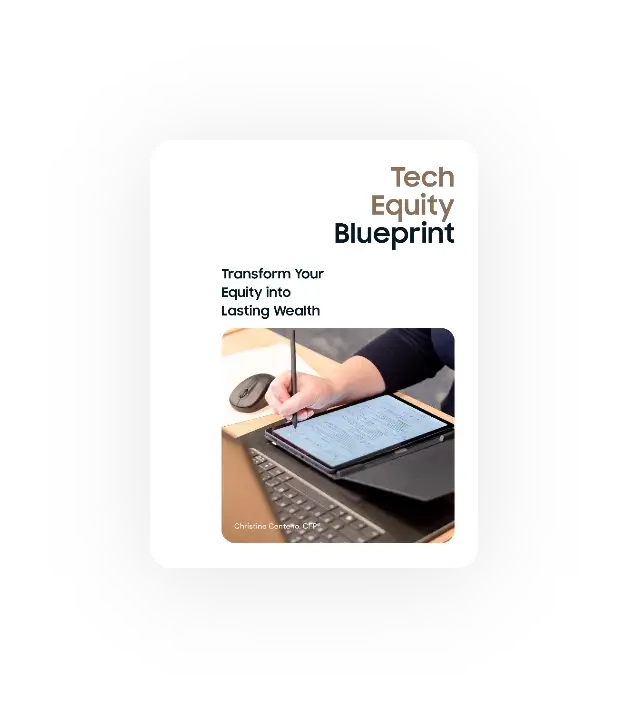BLOG / Real Estate
Vacation Homes and Rental Properties: Assessing the Pros, Cons, and Alternatives to Owning Real Estate

Real estate has long been a favored asset class among U.S. investors due to its tangible value and promising returns. In fact, about 70% of investment properties in the United States are owned by individual investors, according to Census estimates.
Indeed, the allure of owning a vacation home or rental property offers the potential for tax benefits, rental income, and capital appreciation. In some cases, it also provides an opportunity to spend more time in one of your favorite parts of the world.
Yet real estate may not be the best investment choice for everyone. Despite the potential benefits, there are also a variety of risks and opportunity costs involved with owning property.
Therefore, it’s wise to weigh the pros and cons of purchasing a vacation home or rental property and consider the potential alternatives before investing your hard-earned wealth in real estate.
Vacation Home vs. Rental Property: What’s the Difference?
Vacation homes and rental properties are two types of real estate investments that differ based on their intended use, return objectives, and tax implications.
Although vacation homeowners may rent their homes out occasionally, a vacation home’s primary purpose is for leisure and personal enjoyment. A vacation home may appreciate in value over time, but the owner may never realize this gain if they don’t plan to sell.
Meanwhile, the purpose of owning a rental property is to generate consistent rental income. There’s also the potential for the owner to profit from the property’s appreciation over time.
From a tax perspective, mortgage interest and property taxes are often deductible on a vacation home. Rental properties, on the other hand, allow for a wider range of deductions like depreciation, repairs, and maintenance expenses.
Thus, the choice between a vacation home and rental property largely depends on an individual’s personal and financial goals. However, an assessment of the potential pros and cons, as well as the possible alternatives to owning property, can also be beneficial.
Vacation Home Pros
Owning a vacation home can provide several advantages, both financial and non-financial.
Historically, an investment in real estate earns 3-4% annually, on average. Depending on location and market dynamics, the value of your home may appreciate meaningfully, leading to a potential profit if you decide to sell.
When you’re not using the property personally, you also have the option to rent it out to generate income. This can help offset maintenance costs, taxes, and possibly even your mortgage payments.
Lastly, there may be tax benefits associated with owning a second home. For example, you may be able to deduct property taxes and interest on your mortgage, potentially lowering your overall tax liability.
At the same time, owning a vacation home also comes with non-financial advantages, including:
Convenience. Having a vacation home allows for spontaneous and convenient getaways without worrying about accommodation availability or costs.
Familiarity and control. You have the luxury of vacationing in a place that feels like a second home, offering a sense of familiarity and comfort. In addition, you have complete control over the property, allowing for customization according to personal tastes and needs.
Legacy. A vacation home can become a cherished family asset, creating a lasting legacy and memories for generations.
Potential Cons of Owning a Vacation Home
While owning a vacation home has many advantages, it’s also important to consider the potential costs and risks associated with owning a second home.
First, the cost of owning a vacation property can be high. In addition to the purchase price, ongoing expenses such as property taxes, utilities, insurance, and maintenance can be substantial.
In addition, real estate is a relatively illiquid asset compared to investing in securities like stocks and bonds. If you need to sell the property quickly to free up cash, you might have to accept a lower price.
Lastly, real estate markets tend to fluctuate over time. There’s no guarantee you’ll profit from your investment if you eventually decide to sell your vacation property.
Beyond the financial costs, there are other potential disadvantages to consider, including:
Property Management Responsibilities. Owning a vacation home, especially one that’s far away, may require you to hire someone to handle maintenance, repairs, and possible tenant issues.
Lifestyle Restrictions. Owning a vacation property might tie you to one location, which could limit your desire or ability to travel and experience new places.
Emotional Stress. Dealing with property issues, especially from a distance, can cause emotional stress. This is especially true if your vacation home is in a location that’s prone to natural disasters such as hurricanes or wildfires.
Alternatives to Buying a Vacation Home
As you weigh the potential pros and cons of buying a vacation home, it’s also important to consider possible alternatives. These options may satisfy your desire to have a vacation getaway without taking on the burden of homeownership.
Extended vacation rentals. In addition to private rentals, companies like Airbnb and VRBO make it easy to find and rent your dream vacation home. You may even be able to extend your stay for several weeks or months. This option gives you the flexibility to vacation in different places without the commitment of ownership.
Fractional ownership. Fractional ownership allows you to purchase an interest in a vacation property with others to share the overall cost. Unlike a timeshare, you receive a deed for the property—not a time that you can use it—meaning you may benefit if the property rises in value.
Timeshares. Purchasing a timeshare gives you the right to use a vacation property for a set amount of time. However, you don’t have ownership rights to the property. While the overall cost of owning a timeshare is typically less than a vacation home, it’s important to keep in mind the secondary market for timeshares is small to nonexistent. Therefore, you shouldn’t expect to sell it for a profit or recoup your costs.
Of course, there are advantages and disadvantages associated with each of these options. Ultimately, your decision to purchase a vacation home or pursue a different path depends on your circumstances, goals, and competing financial obligations.
Rental Property Pros
If you vacation infrequently, you may want to consider purchasing a rental property instead. While you can still enjoy the property on a limited basis, you may also realize more meaningful financial benefits by renting it out throughout the year.
Indeed, a rental property may provide a steady stream of income when you’re not using it. This income may cover the expenses associated with owning and maintaining the property and potentially provide extra income.
Moreover, the property may increase in value over time, which could result in a meaningful profit if you decide to sell.
In the meantime, you can deduct expenses related to owning and managing a rental property on your tax return in most cases. These may include mortgage interest, property taxes, insurance, maintenance repairs, property management fees, and depreciation.
In addition, owning a rental property can help diversify your investment portfolio, spreading risk across different asset classes. And depending on your credit worthiness and other factors, you may be able to use financing to purchase a more valuable property than you could normally afford outright and increase your potential profit.
Lastly, real estate can be an effective inflation hedge, ensuring your investment dollars retain their purchasing power over time. As prices rise, so too can rent and property values.
Potential Cons of Owning a Rental Property
Although owning a rental property can be a lucrative investment, there are potential disadvantages and risks to consider. First, you might have to deal with difficult tenants, late payments, or even legal issues as a landlord.
Plus, there may be periods of time where you can’t find a tenant, resulting in a loss of rental income while still having to cover property expenses. If you financed the property, there’s the risk of being unable to cover the mortgage payments if the property remains vacant for a long period.
At the same time, regular maintenance, repairs, and property updates can be costly and time-consuming, especially for older properties. Moreover, if you don’t live near the rental property, you may need to hire a property manager, which can add to your costs.
Lastly, like buying a vacation home, rental properties come with the risk of depreciation. In addition, if you need cash quickly, you may need to sell the property at a lower price than you’d normally accept.
Alternatives to Buying a Rental Property
Given the high costs and risks associated with buying a rental property, it may be wise to consider alternative investments that can help you achieve similar objectives. Examples include:
Real Estate Investment Trusts (REITs). REITs are companies that own, operate, or finance income-producing real estate. As a REIT shareholder, you can earn a share of the income without having to own or manage the property. And unlike direct property ownership, REITs are traded on major stock exchanges, providing liquidity and ease of entry and exit.
Real Estate Crowdfunding. Real estate crowdfunding platforms allow you to invest in a small portion of a large real estate project, democratizing access to large-scale commercial, residential, or industrial real estate projects that would be otherwise inaccessible for individual investors. Thus, you can participate in potential returns without taking on many of the risks associated with property ownership.
Real Estate Mutual Funds or ETFs. These funds invest in stocks of real estate companies and REITs. They offer diversification across different types of real estate assets and geographies, and like REITs, they are traded on major exchanges, which adds liquidity.
While these alternatives can provide access to real estate investments without direct ownership, they come with their own set of risks. Be sure to conduct your due diligence and consider consulting with a financial professional before investing.
Simplicity Wealth Management Can Help You Determine if Buying a Vacation Home or Rental Property Is Right for You
Both vacation homes and rental properties can be great investments if you’re a high-earning professional looking to diversify your portfolio. However, it’s important to weigh the pros and cons of each and consider your goals and competing financial needs before taking the leap.
Ultimately, if you’re looking for a place to escape and create memories with your loved ones, a vacation home may be the right choice. But if your goal is to generate passive income and build long-term wealth, an investment property may be a better fit.
A fee-only financial planner like Simplicity Wealth Management can help you determine if investing in real estate makes sense for you. To see if we may be the right fit for your financial planning needs, please schedule a call.



